What Happens If a Vegan Accidentally Eats Meat
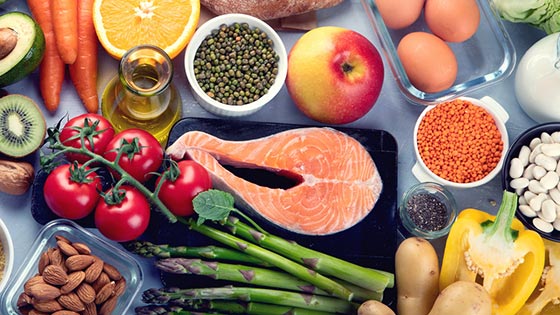
Some people who have chosen vegetarianism, after a few months or a few years, decide again to use all kinds of meat and abandon the previous dietary restrictions. But if you have tried such a thing, you know that using meat again will definitely be associated with various changes in the digestive level and in the physical or mental state.
1. Your digestion may slow down
When the use of meat reaches several times a week (for example, 3 to 4 times a week), you will definitely notice that your digestion speed has decreased compared to when you were a vegetarian. But what is the reason for such an event? Experts say that meats are rich in animal protein and can be high in fat, while not providing any fiber to the body. All these factors together can affect the digestive system and cause constipation or simply reduce the number of bowel movements.
If this problem really bothers you, you should still adjust the main part of your diet based on plant foods and always use lean and lighter meats.
2. Less gas is expelled from your digestive system
Severe bloating and the formation of a large volume of gas in the digestive system are not pleasant for anyone. Vegetarians usually face this problem more than others, but they also expel gas from the digestive system much more easily. In fact, foods such as lentils, beans, and cruciferous vegetables (such as cabbages) all cause bloating, and vegetarians usually consume large amounts of these foods, but the gas formed in their digestive system is much easier to expel. Vegetarians who decide to eat meat again after a while find very quickly that the elimination of gas from the digestive tract is not as easy as it used to be and after a while it seems that the size of their stomach has increased. This problem sometimes goes so far that it becomes really difficult to wear some regular clothes. To deal with this problem, you should take the consumption of boiling water seriously during the day. Using foods rich in fiber such as raw nuts and seeds, various fruits and vegetables along with whole grains helps to solve this problem.
3. You may experience increased energy
Although vegetarianism is associated with a feeling of lightness in the body and mind, the lack of energy associated with vegetarianism cannot be ignored. Although at first glance it seems that the use of vegetable proteins in vegetarian diets can provide all the energy the body needs, but to achieve this goal, you have to consume a large amount of plant foods, which is usually very difficult. However, animal food sources can introduce more protein into the body with a smaller volume of food and provide the energy needed by the body more easily.
4. You may gain better muscle mass
Some of those who start eating meat again after a long time, face an increase in the volume of muscle mass. Of course, it is very important to pay attention to the fact that every person and every body has its own characteristics. So maybe starting to eat meat again won't be associated with an increase in muscle mass in everyone's body, but if you consume high-quality animal proteins and balanced amounts of macronutrients, you will most likely experience this change in muscle mass levels.
Your taste may become weaker
Zinc is physically heavy and performs various functions in the body. One of the things that zinc does in the body is to strengthen the body's immune system. Minerals in oysters and red meat are useful for the sense of taste and hearing. A research at the University of Tokushima, Japan showed that the lack of zinc in the body is the main cause of the disability of the sense of taste. The conclusion of this research was that patients who have taste problems are due to bad absorption of zinc in food.
Therefore, experts recently recommend that meat should still be consumed, albeit in much smaller quantities. You can get zinc through beans, nuts, grains, and dairy products, but the phytic acid in all grains can prevent zinc from being properly digested, says Javan Blake. As a result, all vegetarians need 50% of the zinc consumed by meat eaters. It is suggested that women consume 8 mg and men 12 mg of meat daily.
Muscles need more time to recover
The role of protein in muscle activity is undeniable. But where to get this protein? Both vegetable protein and animal protein are useful, but the former needs more time to be effective. "My advice to athletes is to consume protein in a liquid form after a workout, because liquids are absorbed much faster," says Bailey. You can make a drink with milk and put some pieces of fruit in it and then consume it. "The body will quickly absorb it after exercise."
Nutritional supplements
You may also need a little nutritional supplement. Studies show that vegetarians get as much iron as meat eaters. In terms of calcium and vitamin B12, there is no problem and the nervous system will work well. But if you are concerned about certain nutrients like zinc mentioned above, you can use nutritional supplements.
plant based diet for athletes
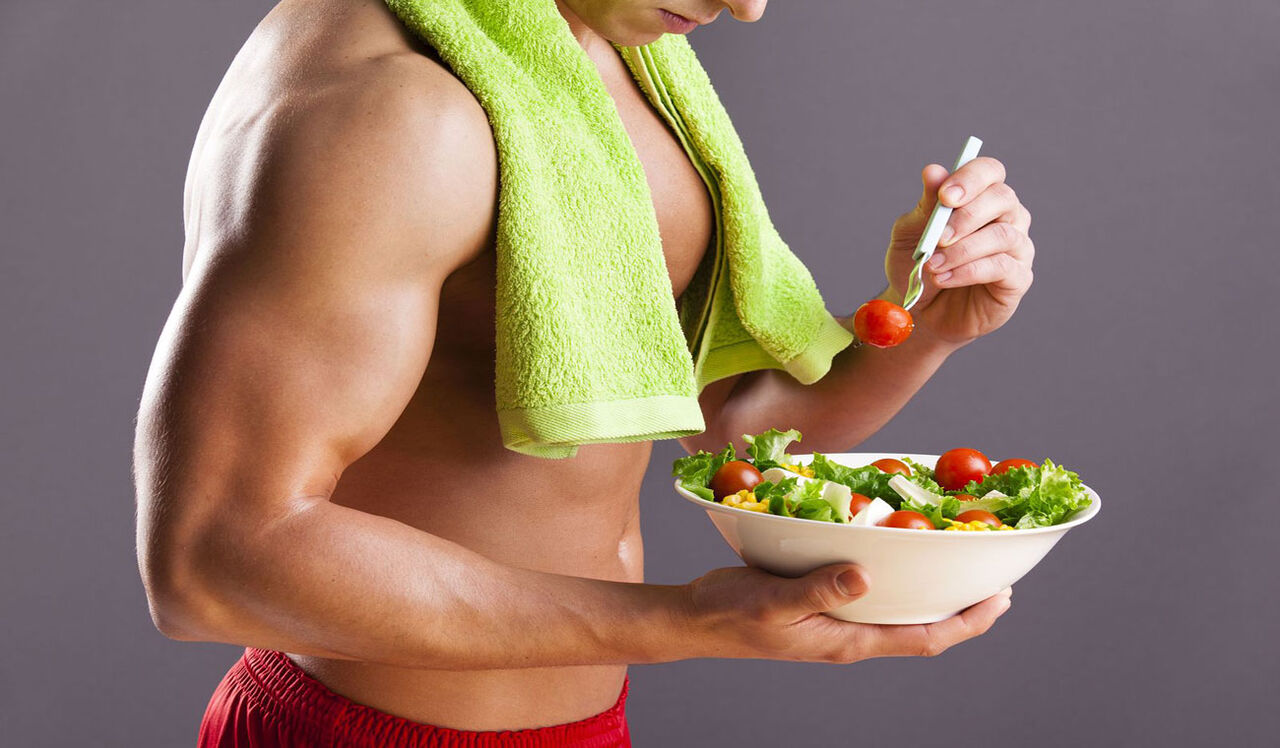
If you follow a vegan (vegetable) diet, you can also exercise. Vegetarian diets are suitable for all people. A vegan diet, if you choose the right foods, will provide you with all the nutrients your body needs, but still, this diet should be well planned to prevent nutritional deficiencies and damage to you.
Vegetarian diet for athletes
Although the vegan diet is not compatible with exercise, if you do, it requires you to consume more nutrients.
Someone who follows a vegan diet may have ideological or health motivations, or they may simply decide to follow this diet because they are interested in eating this type of food. Anyway, the foods that are in the vegan diet category can be equal to other diets in terms of nutrients if they choose the right foods.
It has been said that the vegan diet is not suitable for sports and professional athletes, but nevertheless, for athletes, it should be such that it provides the needs of their body, and it is also necessary for these people to take special care to replace foods of animal origin. bring
Are there athletes who follow a vegan diet?
The answer to this question is yes! Vegan athletes are present in various types of sports, such as:
Lizzie Hawker, multi-award winning long distance runner
Edwin Musa, two-time Olympic champion in 400 meters hurdles
Dave Scott, six-time champion triathlete
Alberto Paz Serrano, track and field runner
Sergio Aguero, professional soccer player
Patrik Babumian, German heavyweight contender
William's sisters, professional tennis players
Frank Medrano, Swedish sports expert
So, what should these people do to maintain their diet and get the necessary nutrients for their bodies? To reach this answer, stay with us in the rest of the article:
Fruits and vegetables
Fruits and vegetables should be the main food sources in the diet of athletes because these substances provide the necessary energy for their training.
A vegan athlete should base his diet on fresh and seasonal foods, and contrary to popular belief, these people should not only eat rice and pasta.
According to what we said in the moist nutrition and fitness section, seasonal vegetables and fruits are essential for these people because vegan athletes need certain vitamins and minerals, and athletes who are trying to lose fat should prioritize the consumption of vegetables. And athletes who are trying to gain weight and improve their performance should prioritize fruit consumption (including the foods we will mention below), because it provides more calories and carbohydrates than the previous group. do
Consumption of carbohydrates
Vegan athletes should include rice, oats, and nuts in their diet, because these substances, in addition to protein and healthy fats, provide them with many different vitamins and minerals. In addition to the main sources of protein in the vegan diet, beans and legumes are good sources of carbohydrates.
This is one of the reasons why vegan athletes avoid other nutritionally interesting grains in favor of adding more dietary options with legumes, seeds, and nuts. Instead of wheat pasta, they should choose legume flour (such as chickpea flour) or vegetable pasta (such as peas or lentil pasta).
Protein
Legumes are the main source of vegetable protein and therefore athletes should include them in their diet.
For many athletes who follow a vegan diet, protein supply is a problem. After all, when most people think of these micronutrients, only their animal sources come to mind, and even so, legumes and nuts are good sources of plant protein.
They can be used in stews, salads and foods such as hummus or butter such as peanut butter, which are rich in calories and nutrients.
Other suitable options are almond and hazelnut cream, which can be made at home by crushing nuts.
Also, mushrooms should be considered because of their high nutritional value. This valuable food item can provide you with about 12 to 15 grams of protein per meal.
Fat for a vegetarian athlete
Essential fatty acids are another common drawback of vegan diets. Fish is the best source of omega-3 essential fatty acids, however, this does not mean that they are the only foods containing fatty acids.
Vegan fat sources can be found in:
Nuts: walnuts, peanuts, almonds, hazelnuts and pistachios.
Seeds: including pumpkin, sunflower, sesame, flax and poppy.
Fatty fruits: avocado, olive, etc
Olive oil, almond oil, sesame oil, etc.
Vegetables (preferably organic)
Remember that it is the job of a certified sports nutritionist to help you follow a complete and balanced diet that will allow you to enjoy optimal health, and the tips provided in this fitness section are only one aspect. Increase your information.
Discover the Best Vegan Sources of Calcium for Strong Bones
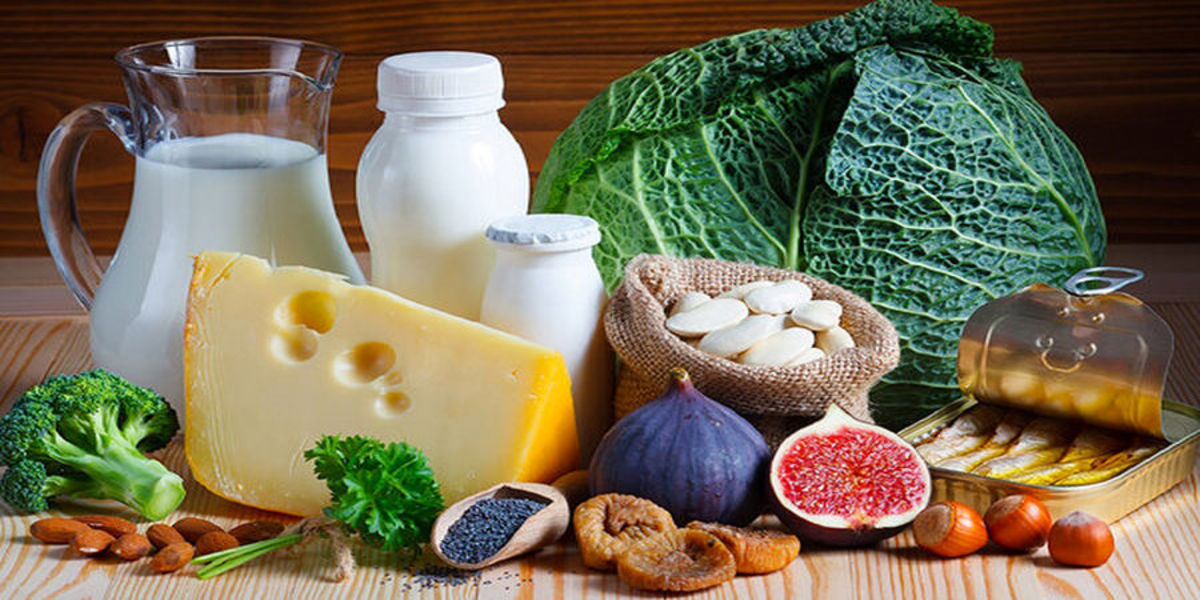
No matter what diet you choose, the public often overlooks the importance of calcium. However, identifying and using plant sources of calcium is very important, especially for vegans because they do not use animal dairy products. Of course, there is no need to worry because plant sources of calcium are very rich and available. It is enough to know the amount needed by the body in each of them.
Calcium plays an essential role in your body. The most important role of kalism is building and strengthening the bones of your body. Also, this mineral is particularly important in muscle contraction, blood pressure regulation, nerve transmission and blood clotting. The daily nutrient requirement for calcium is 1000 mg per day for adults. This amount reaches 1200 mg for people over 50 years old and 1300 mg for children aged 4 to 18 years.
1. Foods containing soy
Soybeans are naturally rich in calcium. One cup (175 grams) of cooked soybeans provides 18.5% of your daily dietary requirement, compared to 27.6% in soybeans.
Products made from soybeans such as tofu, tempeh, natto, soy milk and soybean oil are also rich in this mineral. Tofu made with calcium phosphate contains 350 mg per 100 grams. Tempeh and natto made from fermented soybeans also contain good amounts of calcium. A 100g serving covers 11% of the daily requirement, while Nato provides about twice that amount.
On the other hand, less processed soy foods are a good source of fiber, vitamins and minerals. In addition, soy is one of the few plant foods that contain protein. This is because soybeans contain a good amount of amino acids needed by the body.
Summary
Soybeans and soy-based foods are excellent sources of calcium. They also provide complete protein, fiber, and an array of vitamins and minerals.
2. Beans, peas and lentils
Besides being rich in fiber and protein, beans and lentils are plant sources of calcium. In general, some legumes that provide the highest level of this mineral per cup (about 175 grams) include:
White beans: 13% of the daily nutrient requirement
Black beans: 11% of the daily nutrient requirement
Chickpeas: 9% of the daily nutrient requirement
Red beans: 7% of the daily nutrient requirement
Lentils: 4% of the daily nutrient requirement
Winged beans (Gua): 26% of the daily nutrient requirement
In addition, beans and lentils are rich in other nutrients, including iron, zinc, potassium, magnesium, and folic acid. They also contain nutrients like phytic acid and lectins that reduce your body's ability to absorb other nutrients. Soaking, sprouting and fermenting beans and lentils can help absorb more nutrients.
In addition, diets rich in beans, peas and lentils lower bad cholesterol (LDL) and reduce the risk of diseases such as type 2 diabetes, heart disease and premature death.
Summary
Beans, peas and lentils contain good amounts of calcium and are excellent sources of protein and fiber. Soaking, sprouting, or fermenting them can improve nutrient absorption.
3. All kinds of nuts
All types of nuts contain small amounts of calcium, but this amount is higher in almonds. 97 mg per 35 grams!
Walnuts, pistachios, hazelnuts and cashews provide between 2-3% of the daily requirement. Nuts are also a good source of fiber, healthy fats and protein. They are rich in antioxidants and contain good amounts of B vitamins, magnesium, copper, potassium and selenium, as well as vitamins E and K.
It's good to know that eating nuts regularly can help you lose weight, lower blood pressure, and reduce risk factors for metabolic diseases, such as type 2 diabetes and heart disease.
Summary
Nuts are a good source of calcium. A quarter cup (35 grams) of it will help you provide between 2 and 10% of your daily dietary needs.
4. Seeds
Their seeds and butter are also plant sources of calcium, but the amount in it depends on its type.
Tahini, the butter made from sesame seeds, has the highest amount of calcium. This seed provides 130 mg per 2 tablespoons (13% of the daily requirement). In comparison, the same amount (20 grams) of sesame seeds provides only 2% of the daily requirement to your body. Chia seeds, flax and hemp also contain good amounts, providing about 5-6% of the daily requirement in every 2 tablespoons (20-25 grams).
Like nuts, seeds contain fiber, protein, healthy fats, vitamins, minerals, and beneficial plant compounds. They also have many effects such as reducing inflammation, blood sugar levels and the risk of heart diseases.
Summary
Certain types of seeds and even their butter can provide up to 13% of your daily calcium needs in your diet. Seeds like chia and flaxseeds are rich in healthy fats, protein and fiber and protect your body against all kinds of diseases.
5. Cereals
Normally, cereals are not considered as plant sources of calcium. But it is not bad to know that some of them contain significant amounts of this mineral. For example, oatmeal is one of the strongest food sources containing plant calcium, which is used cooked to prepare soups, soups, and breakfast cereals. Both are rich in fiber and can be included in a variety of foods.
Do vegans eat fish
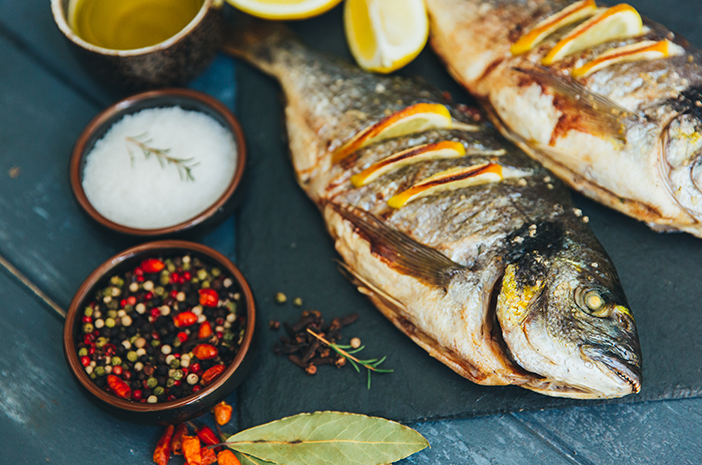
Vegetarian diets have become more popular in recent years, and people may choose to do so for ethical, environmental, religious, or health reasons. A vegetarian diet emphasizes plant-based food elements and includes some animal foods, so you may be wondering, do vegetarians eat fish or seafood?
Some vegetarians, known as lacto-ovo-vegetarians, consume some animal products such as eggs, milk and cheese. However, they do not eat fish. Vegetarians are considered vegetarians if they include fish and seafood in their diet, but refrain from eating meat from other animals.
However, whether pessaries are labeled in this way may be a matter of opinion. Some people may think of vegetarians as those whose diet is entirely plant-based, consuming fish and seafood.
Those who follow other mostly plant-based diets such as the flexitarian diet or the Mediterranean diet can also eat fish and seafood.
Consequently, since fish and seafood are considered animal flesh, they are technically non-vegetarian. If one eats these foods while following a vegetarian diet, they are often called a pessary.
This is the central question that we have to answer to.
However, we would love to give you the answer in a simple and short sentence, but there is a lot that you have to know before getting started on being vegan and answering this question.
In this article, we will see if vegans eat fish and, if not, what they would substitute for the fish meat and the nutrition of the fish.
So if you are read and curious, let’s start with the article and answer all your questions about this concept; we shall begin.
For this fact, most vegans believe that by not eating g fish meat, the oceans and the fish will be saved, and the earth would be a better place for all humans.
· And the last reason we would like to discuss is how these fish are killed and prepared for making food; most industries do not have the delicacy to cut the fish in a way that they suffer less. Instead, they do it most painfully. And we think this is one of the most valid reasons you must stop eating fish because when you think about it, you can see that there are many other ways to get the nutrition you need.
Meat & veganism: Pescatarians
Meat & veganism: Pescatarians
One of the most known facts is that vegans and vegetarians cannot and do not eat meat; this goes for all of the community; these individuals have their reasons for not eating meat.
For instance, all vegetarians avoid meat because it has some heart-related side effects, and vegans do not eat meat because they are against animal cruelty and abuse to meet humans’ needs.
Some plant-based diets may include fish.
Although fish is excluded from the diet of vegetarians and vegans, some vegetarian diets may include certain types of fish.
For example, vegetarians—those who add fish and seafood to a vegetarian diet—generally avoid meat, but may include fish in their diet.
In addition to consuming fish, most pescetarians are also vegetarians, that is, they also consume dairy products and eggs. 1).
Meanwhile, insularism is a plant-based diet that includes bivalves such as clams, oysters, mussels, and scallops in a vegetarian diet.
This is because these species lack a central nervous system, which means they cannot perceive pain like other animal species. 2).
However, this concept is highly controversial, as some research suggests that bivalves may have a more complex nervous system and may experience pain (3).
Result
Some plant-based diets may include fish. An "island vegan" diet may include certain types of shellfish in a vegan diet.
Final result
Fish is highly nutritious and an excellent source of important nutrients including protein, omega-3 fatty acids, vitamin B12, iodine and selenium. 4).
However, it is excluded as part of vegetarianism and other vegetarian diets for medical, environmental, ethical or personal reasons.
However, some types of vegetarian diets may allow certain types of fish, such as bivalves such as clams, oysters, mussels, and scallops.
Professional athletes that are vegan
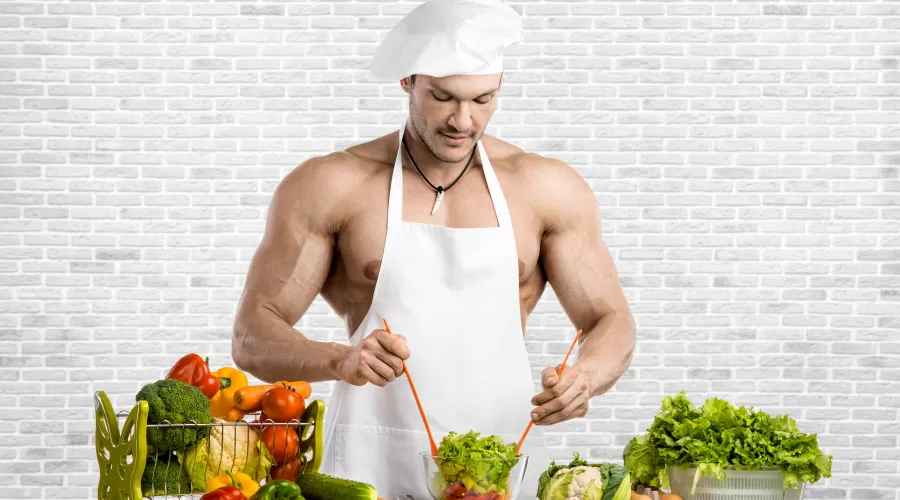
The vegetarian and vegan diet is attracting the attention of more people around the world day by day and the number of its fans is increasing rapidly.
Interestingly, despite the common misconception about this diet, which is said to lack enough nutrients and protein, especially for athletes, many athletes and bodybuilders around the world have turned to vegetarianism.
1. Venus Williams – tennis player
Venus Williams is a famous American vegan sportswoman and tennis player who was born in California in 1980. This athlete has repeatedly won the title of champion in various tournaments, including Wimbledon, American and Australian Open tennis, and has 4 Olympic gold medals in his brilliant sports record.
She is the second greatest female tennis player of all time after her sister Serena Williams.
The cause of vegetarianism and the diet of Venus Williams
Williams switched to a raw vegan diet in 2011 after being diagnosed with Sjogren's syndrome and on the advice of doctors to reduce some symptoms of severe fatigue and joint pain.
According to him, although he switched to this diet to treat his illness, he fell in love with veganism from the very beginning and considers it one of the best diets for providing energy and health.
Although Williams doesn't like breakfast, he starts his day with fruit or fruit and vegetable juice, and his drinks include vegetable juice, protein smoothie, pineapple, orange, and strawberry juice.
Almond milk with granola, lentils, quinoa, strawberry milkshake with protein powder, sweet potatoes, green beans, cabbage, noodles and brown rice are some of the foods he consumes in his meals and usually vegetable juice. He uses cabbage chips, cashews, dates and mangoes for snacks.
Lunch is his biggest meal and his dinner is usually salad with fresh ginger, garlic, pepper, orange juice and lemon.
A large and complete breakfast before the competition and the consumption of rice, tofu, sweet potato and drinking water with electrolyte powder are the foods that he uses to increase his energy after the competition.
2. Lewis Hamilton – Formula 1 driver
Lewis Hamilton, the English Formula 1 driver, was born in 1985 in Hertfordshire, England. So far, he has won the Formula 1 world championship five times and is a record holder in many cases.
Lewis Hamilton's net worth is $285 million.
The cause of vegetarianism and Lewis Hamilton's diet
2017 and more Hamilton has joined the big wagon family for environmental reasons.
He says: "Man has brought pollution to the world and the amount of pollution caused by raising cows is even more than the pollution caused by vehicles. This is really crazy and cruel and I don't see the need to support it. I will."
Hamilton loves breakfast but avoids sweets made with dairy butter and often uses beans with toast. He has always loved avocado and vegan pancakes are one of his favorite sweets.
Hong Kong special vegan burger, falafel, quinoa powder, fried garlic tofu with vegetables, brown rice, whole wheat pasta, tempeh and baked sweet potato are among the foods consumed by this athlete in different meals and drinking fresh coffee Or green tea with 85% dark chocolate.
3. Jermain Defoe – footballer
Jermain Defoe is a famous English footballer and scorer who was born in 1982 in Becton, England.
Defoe has played in more than 57 international games and currently plays for Bournemouth and the England national team.
Jermain Defoe's cause of vegetarianism and diet
Defoe switched to a vegan diet in 2017 and said about not consuming meat, eggs and dairy products that not only was it not difficult for him, but following a vegan diet increased his performance and success in the field of sports and gave him a better understanding of his body. has earned
His meal the night before the competition is usually whole wheat pasta with vegetable pesto sauce or brown rice and steamed vegetables such as spinach and broccoli, and on the morning of the competition he eats porridge with almond milk, berries and a little honey.
Baked beans, rice pudding with almond milk, cinnamon and strawberry jam, vegetarian pizza and vegan cheese are among the other foods consumed by this footballer.
4. David Haye – Boxer
British heavyweight boxer David Haye was born in London in 1980. He is the owner of various world championship titles in two weight categories and in 2008 he won three of the four main boxing titles in the world.
The cause of vegetarianism and David Hay's diet
After a severe shoulder injury that led to surgery and a break in his sports activities, David Hay researched the benefits of a plant-based diet on speeding up wound healing and reducing recovery time, and joined the vegan family in 2014.
He says about this: "Monkeys are twenty times stronger than humans, even though they never eat meat. It is a false myth that you have to eat meat to increase your physical strength. "I have a full-time cook and a good nutritionist to make sure I get all the minerals and nutrients I need."
David Hay provides most of the protein he needs by consuming a lot of beans and lentils. Other foods he consumes include cod liver oil, quinoa, brown rice, puree with bananas, kale, celery juice, a mixture of beans and drumsticks, and He mentioned sweet potatoes as well as lots of vegetables and salads along with protein shakes and coconut milk, prunes and dates as snacks.